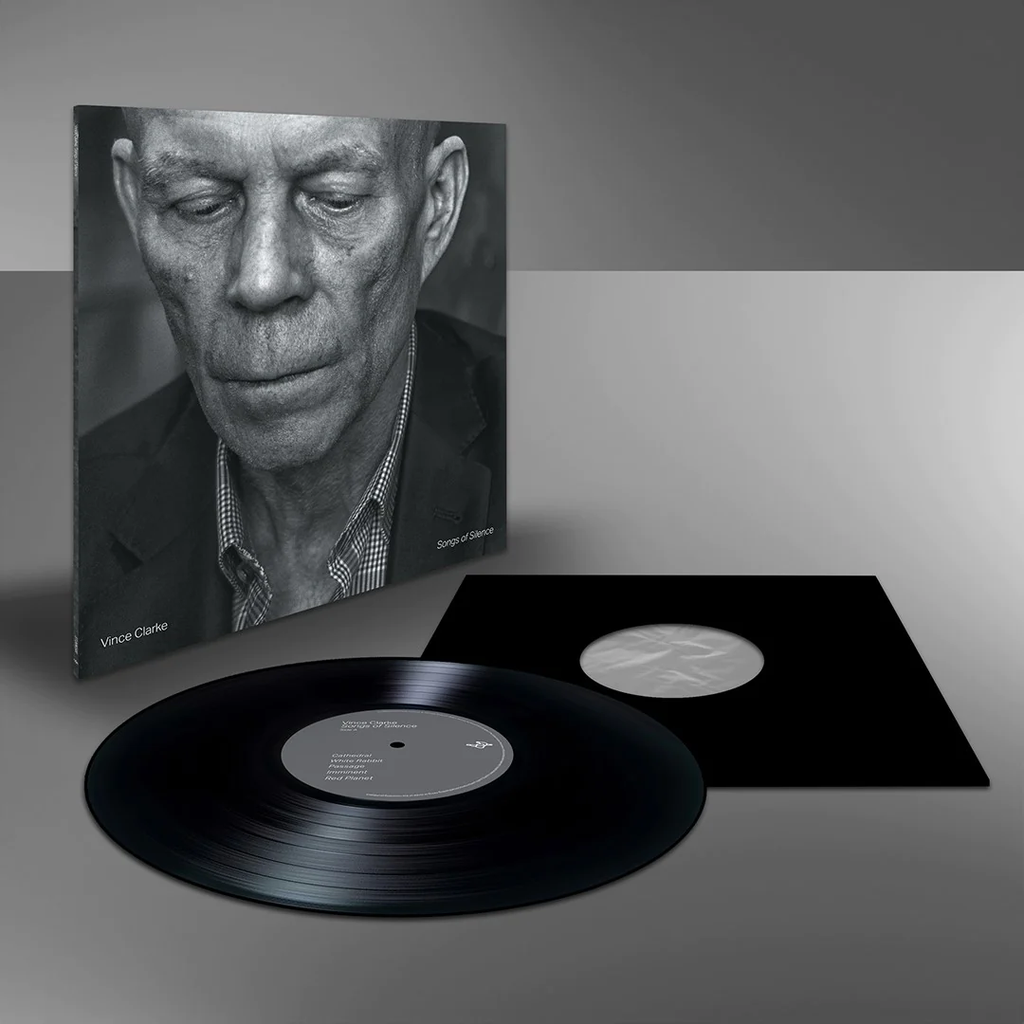No Products in the Cart

Cathedral
White Rabbit
Passage
Imminent
Red Planet
The Lamentations of Jeremiah
Mitosis
Blackleg
Scarper
Last Transmission
As the Ivor Novello winning songwriter behind countless chart-topping pop songs as co-founder of Erasure, Yazoo and Depeche Mode, Clarke has - unbelievably - waited until now to embark on a solo release.
Recorded in his home studio in New York, and featuring photography and artwork by the award-winning Magnum photojournalist Eugene Richards, work on the album began as a distraction during lockdown, a chance to finally get his head around the possibilities of Eurorack, a modular synthesiser format famed for its addictive and limitless configurations. “I could have gone on forever, I could have not stopped,” explains Vince, “I was enjoying the process so much and wasn’t thinking about anyone else hearing it. But hearing it develop in my studio, in my head, learning new tricks – that’s been the best thing about this. I was in a state of shock, actually, when Mute said they wanted to release this album.”
Alone in the studio, Clarke set himself two rules: first, that the sounds he generated for the album would come solely from Eurorack, and second, that each track would be based around one note, maintaining a single key throughout. “Nobody in my household is particularly interested in what I get up to in the studio” says Vince. “Even the cat used to leave after an hour or so of listening to drones.”
The resultant album’s mood of synth-generated, cosmic remoteness is interrupted by stark interventions, reminders of the human hand at work amid this machinery – a scrambled sample like a distressed transmission from a fighter pilot, the wordless operatic contributions of Caroline Joy, the sawing brimstone of composer Reed Hays’ cello on ‘The Lamentations of Jeremiah’, and the album’s centrepiece which builds around the 1844 anti-scab folk song ‘Blackleg Miner’, glowing with resonance and relevance. Elsewhere on the album Clarke manifests relentless sequencer patterns, gradual accelerations, Moog-style drones, glistening droplets of synth, and burgeoning swells of processed guitars, with Clarke describing the tracks as “having a sense of sadness, of things going bad, things crumbling”.
Not content to rest on his considerable pop legacy, Vince Clarke has instead opened up exciting new electronic vistas for himself, and for the rest of us, in which the permutations and possibilities are limitless,

